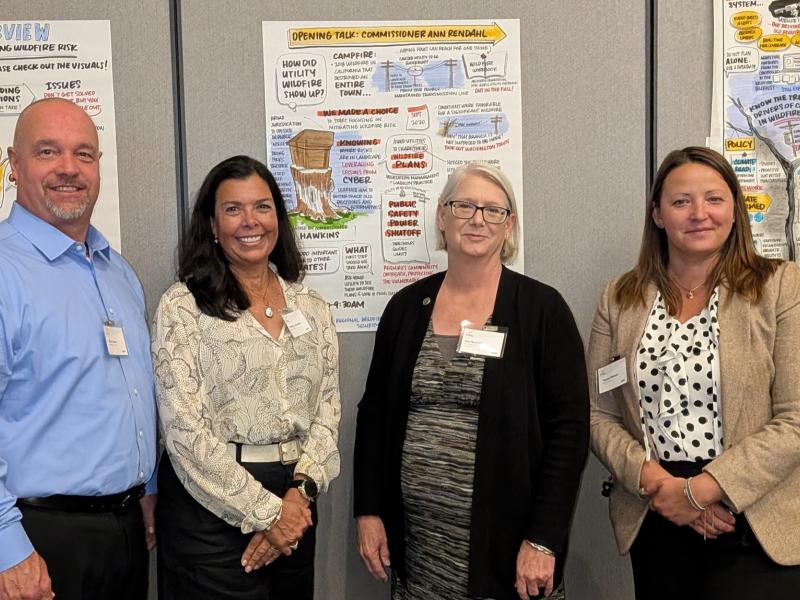
- Explore our Research
- Explore Technical Assistance
- Best Practices
- Tools
- Resources
- Get Connected
State Technical Assistance for Emerging Wildfire Risk
The U.S. Department of Energy’s Office of Electricity is partnering with Pacific Northwest National Laboratory to support state energy security officials through targeted technical assistance, trainings, and workshops. This initiative is designed to strengthen state-level capacity for wildfire planning and response, reduce associated risks and costs, and improve coordination with land management partners. Efforts will prioritize states facing evolving wildfire threats, guided by Pacific Northwest National Laboratory's wildfire mapping and current state wildfire planning activities.
Events and Workshops
Customized workshops or trainings are available to be hosted across United States in regions with emerging wildfire risk. State agencies are encouraged to reach out to us to explore these opportunities to bring together state energy officials, land managers, utilities, technology providers, government representatives and local partners. Formats and content are shaped in collaboration with participating states.
North Central Regional Wildfire Workshop for State Energy Security Planning
PNNL, in partnership with DOE’s Office of Electricity and Office of Cybersecurity, Energy Security, and Emergency Response, hosted a one-day workshop focused on state energy planning for emerging wildfire risk across Iowa, Minnesota, North Dakota, South Dakota, Nebraska, and Wisconsin. The workshop was part of a three-day event focused on Regional Risk Assessment for the North Central Region.

Check out the event photos below!

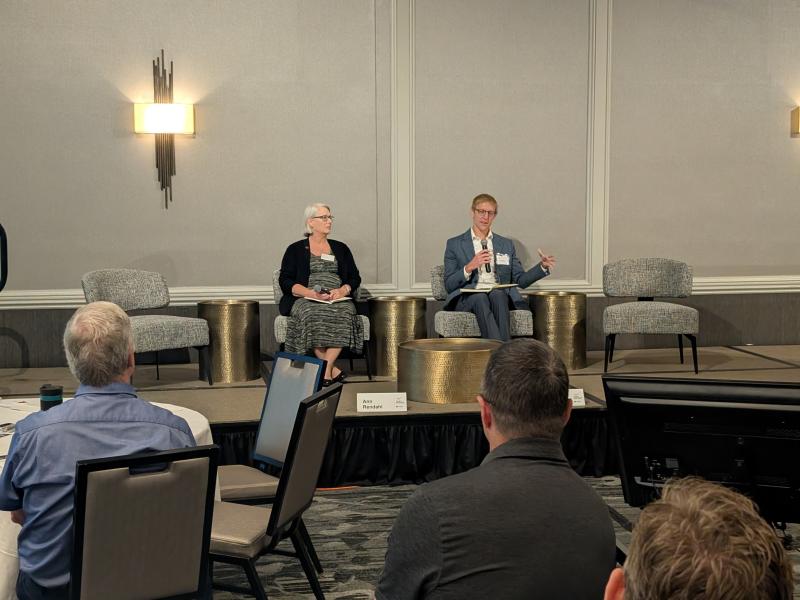
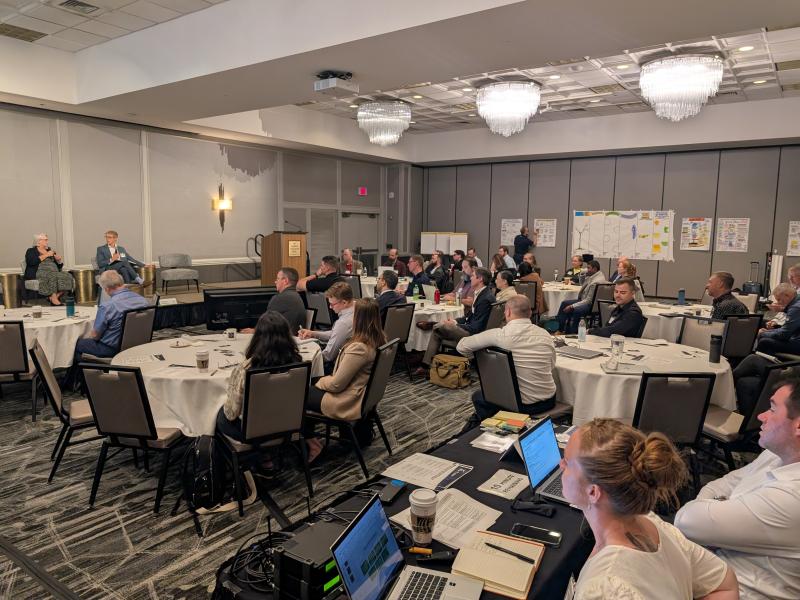
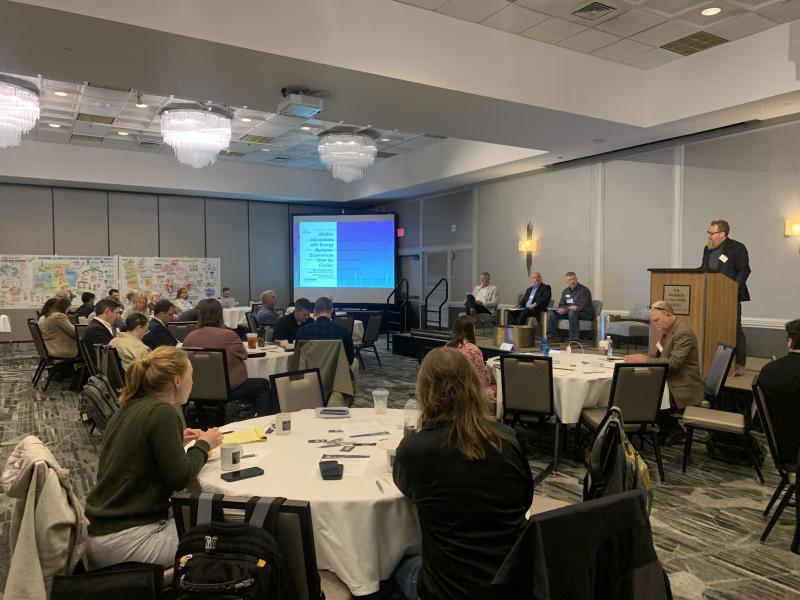
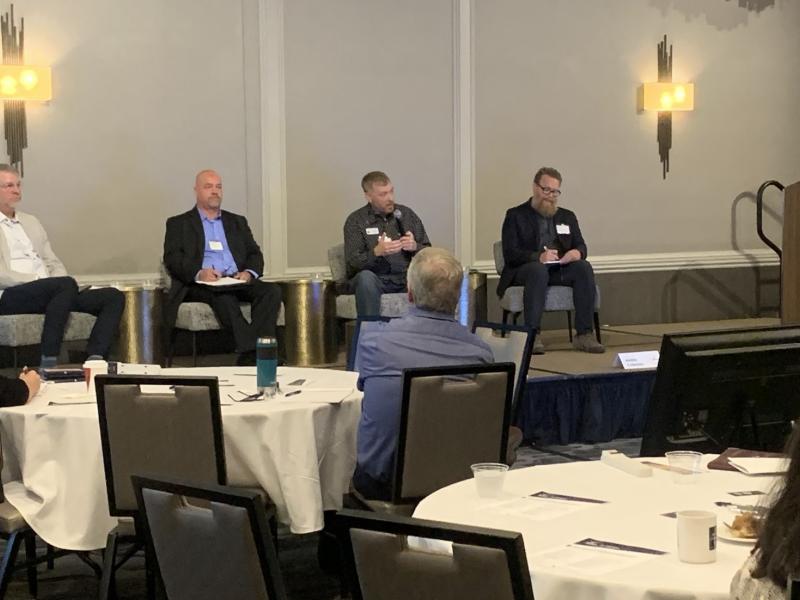
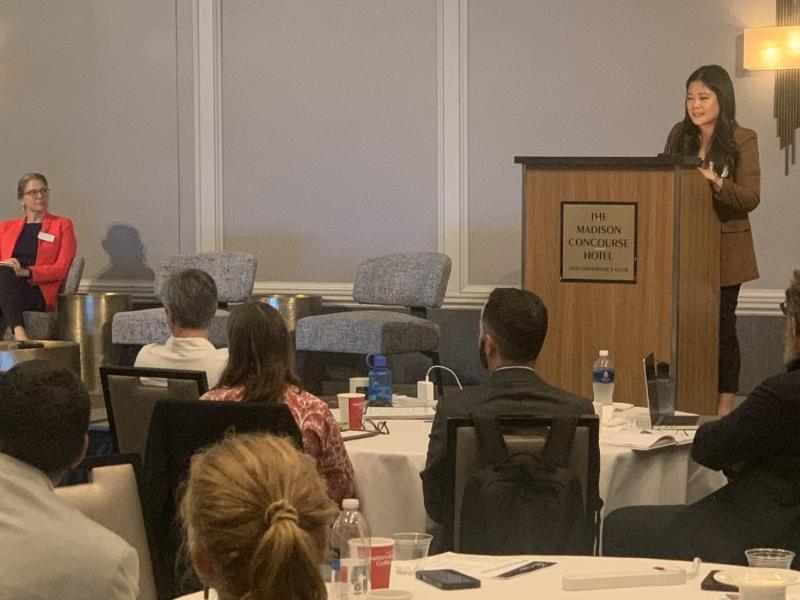
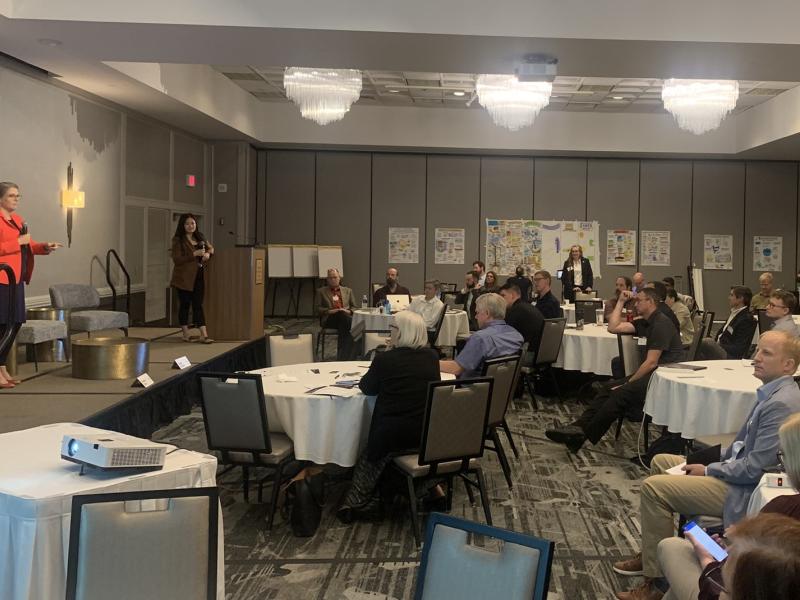
Convening on Wildfire Resilience

The wildfire workshop in Madison, WI brought together commissioners, state energy officials, land managers, utilities, national leaders, and technology experts to examine emerging wildfire risks to energy systems and their financial, operational, and regional impacts. Participants engaged in discussions that covered local and regional wildfire data and how they are changing, utilities’ wildfire mitigation planning, technology solutions and case studies, experiences from the West, among other topics. The event highlighted that wildfire risk is an important focus for proactive collaboration. The event featured expert panel presentations, lively discussions, graphical notetaking, and peer-to-peer learning opportunities.
Download All Workshop Materials
Click each session title in bold to download all presentation materials.
- Wildfire Data: What to Know about Wildfire in the North Central Region
- History and Trends of Wildfire in North Central Region, Jerry Tagestad, PNNL
- Exploring future wildfire risk with Climrr, Ashton Raffety, Argonne National Laboratory
- Climate READi: Power, Jacob Mardian, EPRI
- The Next Generation Fire System, Jason Otkin, CIMSS/University of Wisconsin-Madison
- Wildfire Interactions with Energy Systems
- Moderator: Andre Coleman, PNNL
- WUI Fires in Oregon, Alan Fitzpatrick, Portland Fire and Rescue
- From Hazard to Response: Sensors Enable Wildfire Visibility and Resilience, Scott Lindsay, Gridware
- Utility Wildfire Mitigation Planning
- Wildfire Mitigation: Perspective from Consumer Owned Utilities, Aggie Serrame, APPA
- Utility Wildfire Mitigation Plans: Overview and Database, Rebecca O’Neil, PNNL
- Utility Wildfire Mitigation: Leveraging Experiences from the West
- Moderator: Sarah Trent, NASEO
- Emerging Risk: Adopting Wildfire Mitigation Strategies for Energy Systems, Andre Coleman, PNNL
- Xcel Energy’s Wildfire Mitigation Strategy, Riaz Mohammed, Xcel Energy
- Escaping the Capability Trap: Strategic Reframing of Public Safety Power Shutoffs by Electric Utilities for Wildfire Risk Mitigation, Ali Arabnya, Quanta Technology
- Case Study: Implementing Wildfire Technology Solutions
- Moderator: Megan Levy, CESER
- Shifting utility paradigm from reactive to proactive, Tiffany Menhorn, Prisma Photonics and Josh Lantto, Great River Energy
Event Illustration
Watch a timelapse of graphical notetaking during the event by Wade Forbes of RedTale Communications.